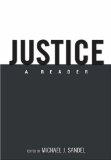Summary | Excerpt | Reading Guide | Reviews | Beyond the Book | Readalikes | Genres & Themes | Author Bio

Critics' Opinion:
Readers' Opinion:
First Published:
Sep 2009, 320 pages
Paperback:
Aug 2010, 320 pages
 Book Reviewed by:
Book Reviewed by:
Micah Gell-Redman
Buy This Book
As the wider debate about the Purple Heart revealed, the real issue
is about the meaning of the medal and the virtues it honors. What,
then, are the relevant virtues? Unlike other military medals, the Purple
Heart honors sacrifice, not bravery. It requires no heroic act, only an
injury inflicted by the enemy. The question is what kind of injury should
count.
A veteran’s group called the Military Order of the Purple Heart
opposed awarding the medal for psychological injuries, claiming that
doing so would “debase” the honor. A spokesman for the group stated
that “shedding blood” should be an essential qualification. He didn’t
explain why bloodless injuries shouldn’t count.
But Tyler E. Boudreau,
a former Marine captain who favors including psychological injuries, offers
a compelling analysis of the dispute. He attributes the opposition to
a deep-seated attitude in the military that views post-traumatic stress as
a kind of weakness. The same culture that demands tough-mindedness
also encourages skepticism toward the suggestion that the violence of
war can hurt the healthiest of minds . . . Sadly, as long as our military
culture bears at least a quiet contempt for the psychological wounds of
war, it is unlikely those veterans will ever see a Purple Heart.
So the debate over the Purple Heart is more than a medical or
clinical dispute about how to determine the veracity of injury. At the
heart of the disagreement are rival conceptions of moral character and
military valor. Those who insist that only bleeding wounds should
count believe that post-traumatic stress reflects a weakness of character
unworthy of honor. Those who believe that psychological wounds
should qualify argue that veterans suffering long-term trauma and severe
depression have sacrificed for their country as surely, and as honorably,
as those who’ve lost a limb.
The dispute over the Purple Heart illustrates the moral logic of
Aristotle’s theory of justice. We can’t determine who deserves a military
medal without asking what virtues the medal properly honors.
And to answer that question, we have to assess competing conceptions
of character and sacrifice.
It might be argued that military medals are a special case, a throwback
to an ancient ethic of honor and virtue. These days, most of our
arguments about justice are about how to distribute the fruits of prosperity,
or the burdens of hard times, and how to define the basic rights
of citizens. In these domains, considerations of welfare and freedom
predominate. But arguments about the rights and wrongs of economic
arrangements often lead us back to Aristotle’s question of what people
morally deserve, and why.
Bailout Outrage
The public furor over the financial crisis of 2008–09 is a case in point.
For years, stock prices and real estate values had climbed. The reckoning
came when the housing bubble burst. Wall Street banks and financial
institutions had made billions of dollars on complex investments
backed by mortgages whose value now plunged. Once proud Wall
Street firms teetered on the edge of collapse. The stock market tanked,
devastating not only big investors but also ordinary Americans, whose
retirement accounts lost much of their value. The total wealth of
American families fell by $11 trillion in 2008, an amount equal to the
combined annual output of Germany, Japan, and the UK.
In October 2008, President George W. Bush asked Congress for
$700 billion to bail out the nation’s big banks and financial firms. It
didn’t seem fair that Wall Street had enjoyed huge profits during the
good times and was now asking taxpayers to foot the bill when things
had gone bad. But there seemed no alternative. The banks and financial
firms had grown so vast and so entwined with every aspect of the economy that their collapse might bring down the entire financial system.
They were “too big to fail.”
Excerpted from Justice: What’s the Right Thing to Do by Michael J. Sandel. Published in September 2009 by Farrar, Straus and Giroux, LLC. Copyright © 2009 by Michael J. Sandel. All rights reserved.





The Funeral Cryer by Wenyan Lu
Debut novelist Wenyan Lu brings us this witty yet profound story about one woman's midlife reawakening in contemporary rural China.
Your guide toexceptional books
BookBrowse seeks out and recommends the best in contemporary fiction and nonfiction—books that not only engage and entertain but also deepen our understanding of ourselves and the world around us.